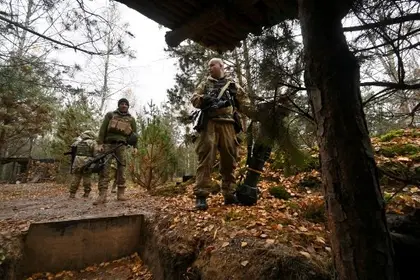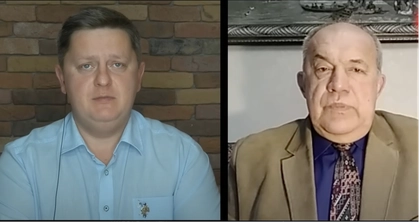Reports of discord between Russian and Belarusian soldiers are increasing, leading to an uncontrolled escalation of tension in Belarus.
On Nov. 6, Ukrainian military intelligence reported numerous conflicts between Belarusian and Russian soldiers, notably related to the disrespectful attitude of Russian soldiers towards their Belarusian counterparts. At the same time, it transpires that the military police of the Republic of Belarus are unable to restrain the behavior of the Russians.
- Check out the freshest Ukraine news items as of today.
- Ukraine War Casualties
JOIN US ON TELEGRAM
Follow our coverage of the war on the @Kyivpost_official.
“Reports submitted by senior officers based on the complaints of ordinary servicemen indicate dismissive statements and behavior of Russians towards Belarusians. In particular, this includes use of humiliation based on ethnic characteristics,” the military intelligence source noted.
On Oct. 16, according to the Ministry of Defense of Belarus, 9,000 Russian soldiers arrived in Belarus as part of a joint regional grouping of the two countries’ forces. This was agreed by Russian President Vladimir Putin and Belarusian president Alexander Lukashenko on Oct. 10.
In late October, Ukrainian military intelligence and the General Command of the Armed Forces of Ukraine reported that Belarus possessed insufficient resources for an offensive. This followed fears of a possible renewed attack on Kyiv from the north.
Still, according to Armed Forces of Ukraine (AFU) spokesman Yevhen Silkin, the likelihood of an offensive from Belarus may increase in the spring.

Exiles From Occupied Bakhmut Find Hope in Christmas Celebrations
“The probability of the aggressor repeating its invasion of Ukraine from Belarus is very low, but it cannot be completely excluded,” Silkin said on Oct.20. “According to our assessment, by the end of the year, the enemy will not be able to accumulate enough forces and funds for a second offensive. But in the spring, such a threat may increase significantly,” he added.
According to Silkin, both the Kremlin and Belarusian regimes are participating in a joint military operation. For its part, Belarus is providing airspace, material support and ammunition. In addition, most of the Belarusian armed forces are stationed along the border areas.
According to the head of the Department of International Military Cooperation of Belarus Valery Revenko, Belarus reserves the right to conduct preventive strategic deterrence measures to avoid an attack or to neutralize an internal armed conflict.
You can also highlight the text and press Ctrl + Enter






